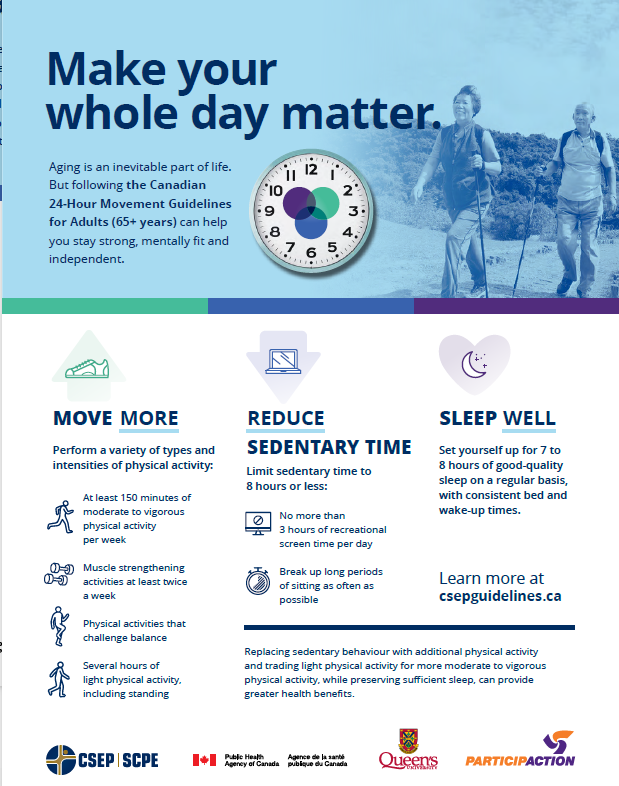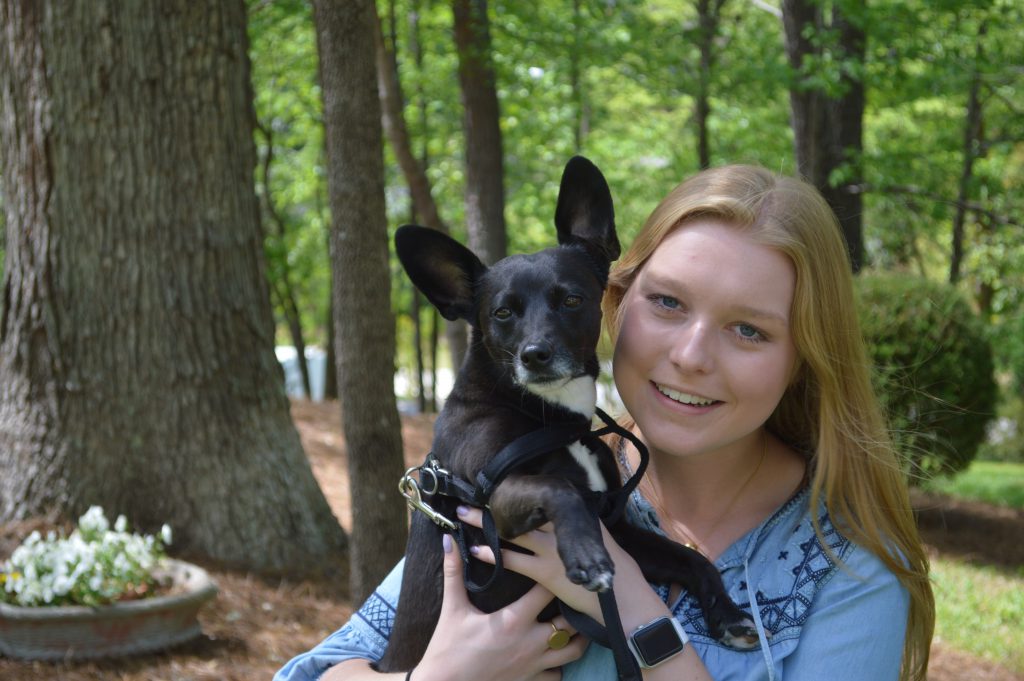For adults, the guidelines include:
- Move More: Add movement throughout your day, including a variety of types and intensities. Aim to accumulate at least 150 minutes per week of moderate to vigorous aerobic physical activity, muscle strengthening activities at least twice a week, and several hours of light physical activities, including standing. Those 65+ should also include physical activities that challenge balance.
- Reduce Sedentary Time: Limit sedentary time to 8 hours or less per day including no more than 3 hours of recreational screen time and breaking up long periods of sitting where possible.
- Sleep Well: For those aged 18-64 set yourself up for 7 to 9 hours of good quality sleep on a regular basis, and 7 to 8 hours for those 65+ years. Consistent bed and wake up times are also key.
More at https://csepguidelines.ca/




